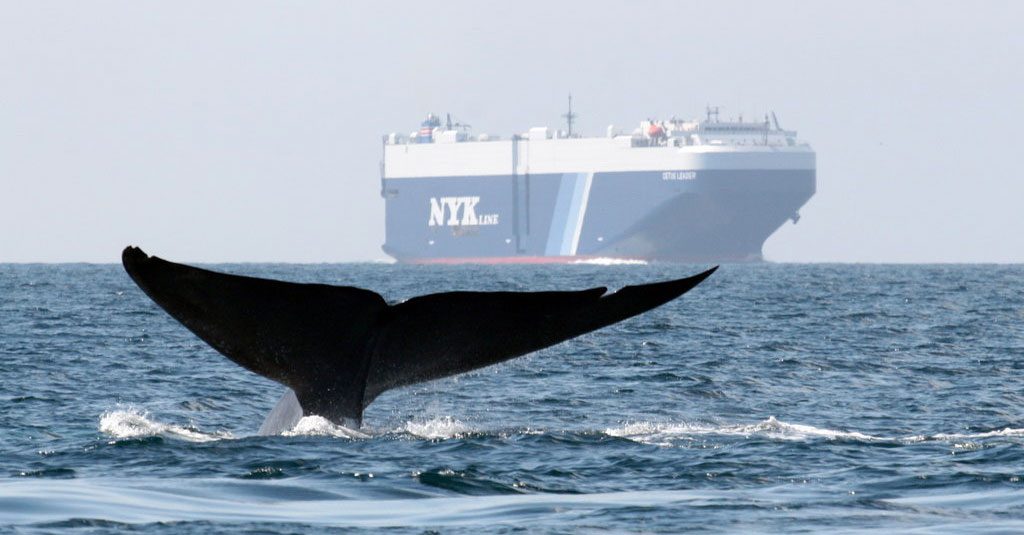Freight Rate War Engulfs Asia-Europe asTranspacific Rally Vanishes
With spot rates on Asia-Europe shipments now being discounted on an almost daily basis, freight buyers on the trades fear that a new freight rate war may now be fully underway.

In California, ship strikes of gray whales are the most commonly reported followed by fin, blue, humpback, and sperm whales. Credit: John Calambokidis/Cascadia Reseach Via NOAA
By Todd Woody
Sep 19, 2025 (Bloomberg) –As climate impacts multiply, a landmark United Nations treaty to protect ocean lifewill go into effect in January.
Sierra Leone and Morocco on Friday provided the final of the 60 votes needed to ratify the accord on the conservation and sustainable use of marine resources, ending a process that started in September 2023. The US signed the treaty under the former President Joe Biden’s administration, but President Donald Trump’s administration has opposed its ratification.
When the high seas biodiversity treaty enters into force in January 2026, it will transform how countries, corporations and scientific organizations do business in the 60% of the ocean beyond any nation’s jurisdiction.
The treaty provides for, among other things, establishing marine protected areas in international waters. A requirement that environmental impact assessments be conducted for activities that could have a harmful or an unknown impact on the high seas goes into effect amid growing interest in using the ocean to absorb and store carbon dioxide. Under the treaty, marine genetic resources — which include marine molecules, bacteria and algae — are designated as the common heritage of humankind whose bounty is to be shared among nations.
The treaty also creates institutions for implementation, including a secretariat to manage day-to-day affairs and a scientific and technical body that will review environmental impact assessments and proposals to create marine protected areas and advise on other matters. Final decisions will be made by member states meeting periodically. (The treaty does not regulate fishing on the high seas, which is managed by other international organizations.)
The high seas biodiversity treaty is the most far-ranging ocean agreement since the 1982 UN Convention on the Law of the Sea, which regulates activities in international waters, including seabed mining. While the law of the sea treaty doesn’t mention the word “biodiversity,” the new agreement specifies modern threats to marine life that include plastic pollution, climate-caused ocean acidification and deoxygenation.
“This is a major win for our oceans and all of us who depend on them. The high seas belong both to no one and to all of us,” Monica Medina, a fellow at Conservation International and former US Assistant Secretary of State for Oceans, said in a statement.
The ratification comes as the Trump administration has authorized the licensing of deep sea mining for critical minerals in international waters that fall under the jurisdiction of a UN-affiliated organization.
© 2025 Bloomberg L.P.

Sign up for gCaptain’s newsletter and never miss an update

Subscribe to gCaptain Daily and stay informed with the latest global maritime and offshore news
Essential news coupled with the finest maritime content sourced from across the globe.
Sign Up